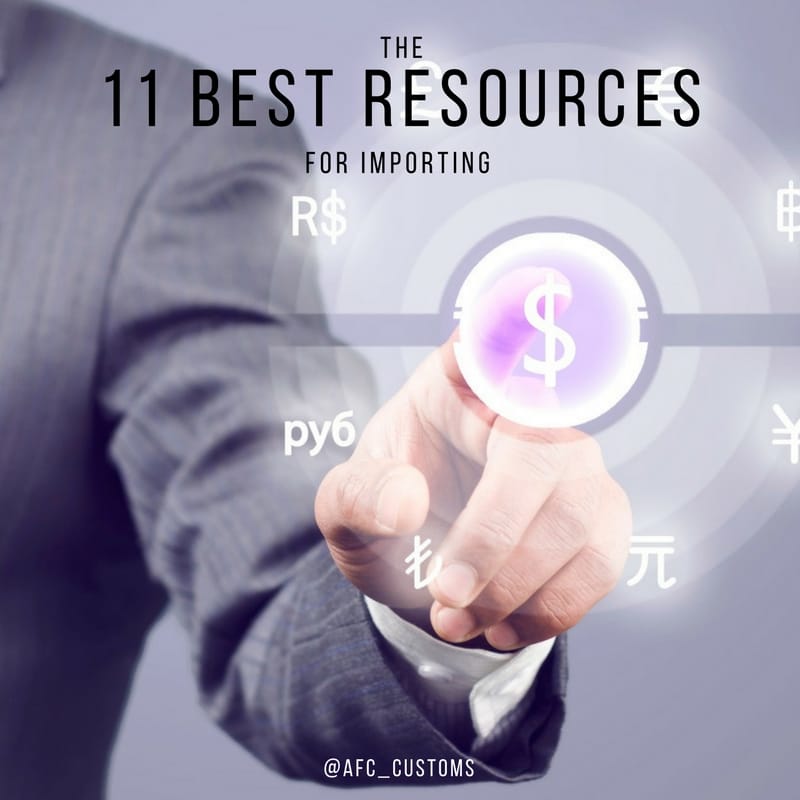Do you have all the tips and knowledge you need as an importer to get your goods delivered safely and efficiently to the United States? There is always room for improvement. With our cheat sheet for the 11 best resources for importing, you will be ahead of the game.
Weights and Measures

The Office of Weights and Measures (OWM) supports the consistency in the laws and standards for U.S. weights and measures to ensure goods are weighted correctly. By promoting standardized business practices, transparency is achieved between buyers and sellers, which in turn achieves consumer confidence. This also allows U.S. businesses to fairly compete at home and overseas; ultimately strengthening the U.S. economy.
The OWM acts as a watchdog to ensure the consistency of state weights and measures standards to create procedures for legal metrology tests and inspections. Read our blog on how weights and measures are important when importing to learn more and find the WOM division information you need.
Currency Converter
Commercial invoices and billing paperwork must contain the proper information for U.S. Customs and Border Protection (CBP) officials so those goods receive approval and entry to the U.S. The currency used for the sale must be stated on your commercial invoice. If your transaction is not in USD currency, use this currency converter to make proper and accurate currency conversions.
U.S. Customs Website
CBP will be closely enforcing laws and regulations for all of your imports and import paperwork. Due to Customs import and documentation requirements, most importers choose to have their imports handled by Licensed Customs Brokers. Use the U.S. Customs website to help you navigate through importing procedures.
U.S. Customs Port List
Imports coming from all over the world arrive through several U.S. ports of entry each year. Use this U.S. Customs port list to find the port that best suits your needs as an overseas importer.
U.S. Customs Guide to NAFTA
If you’re an importer of goods entering the U.S., then you know that taking advantage of the North American Free Trade Agreement (NAFTA) benefits play a big part in achieving importing success. Licensed Customs Brokers can walk you through how to take advantage of NAFTA. NAFTA’s Guide to Customs Procedures is also a great resource to keep handy.
U.S. Customs Forms

Commodity import requirements and paperwork the CBP requires can be handled by Licensed Customer Brokers. The following import document paperwork should always be included:
- A commercial invoice that lists the purchase price, country of origin and tariff classification of your items
- A packing list detailing your imports
- A bill of lading that lists goods in the form of a receipt
- An arrival notice from the U.S. agent
Refer to the U.S. Customs Forms page to find other forms you need to file to achieve import success.
U.S. Customs Internet Purchases
The World Wide Web has made it very easy to find and purchase items globally. Many people don’t realize that getting a foreign item successfully shipped to the U.S. is more complicated than agreeing to the purchase price online.
Follow the U.S. Customs Internet Purchases rules procedures page to properly declare and import your overseas purchases.
U.S. International Trade Commission
The U.S. International Trade Commission’s mission is to administer U.S. trade remedy laws in a fair and objective way and provide independent analysis of tariffs and international trade. The commission’s five major objectives include:
- Import injury investigations
- Intellectual property-based import investigations
- Tariff and trade information services
- Trade policy support
U.S. Department of Agriculture
The U.S. Department of Agriculture (USDA) is responsible for inspecting a certain segment of food, livestock and seed imports. Inspections can result in additional charges if a representative is required to be present with your shipment during inspection, the inspection is not done in an efficient manner or paperwork isn’t filled out properly. Follow USDA guidelines to avoid importing hurdles during inspections.
Food and Drug Administration

The Food and Drug Administration (FDA) is responsible for inspecting most food and drug imports. Inspections can result in additional charges if a representative is required to be present with your shipment during inspection, the inspection is not done in an efficient manner or paperwork isn’t filled out properly. Follow FDA guidelines to avoid importing hurdles during inspections.
Federal Hazardous Substance Act
Many of the thousands of items being imported into the U.S. every day are classified as hazardous and require special importing regulations. Items are hazardous when they affect people handling the items, carriers transporting the item or the general public. Following Federal Hazardous Substance Act requirements will provide you with safety education, research and an overall view of the hazardous regulations required for imports that are hazardous.


Leave a Reply
You must be logged in to post a comment.